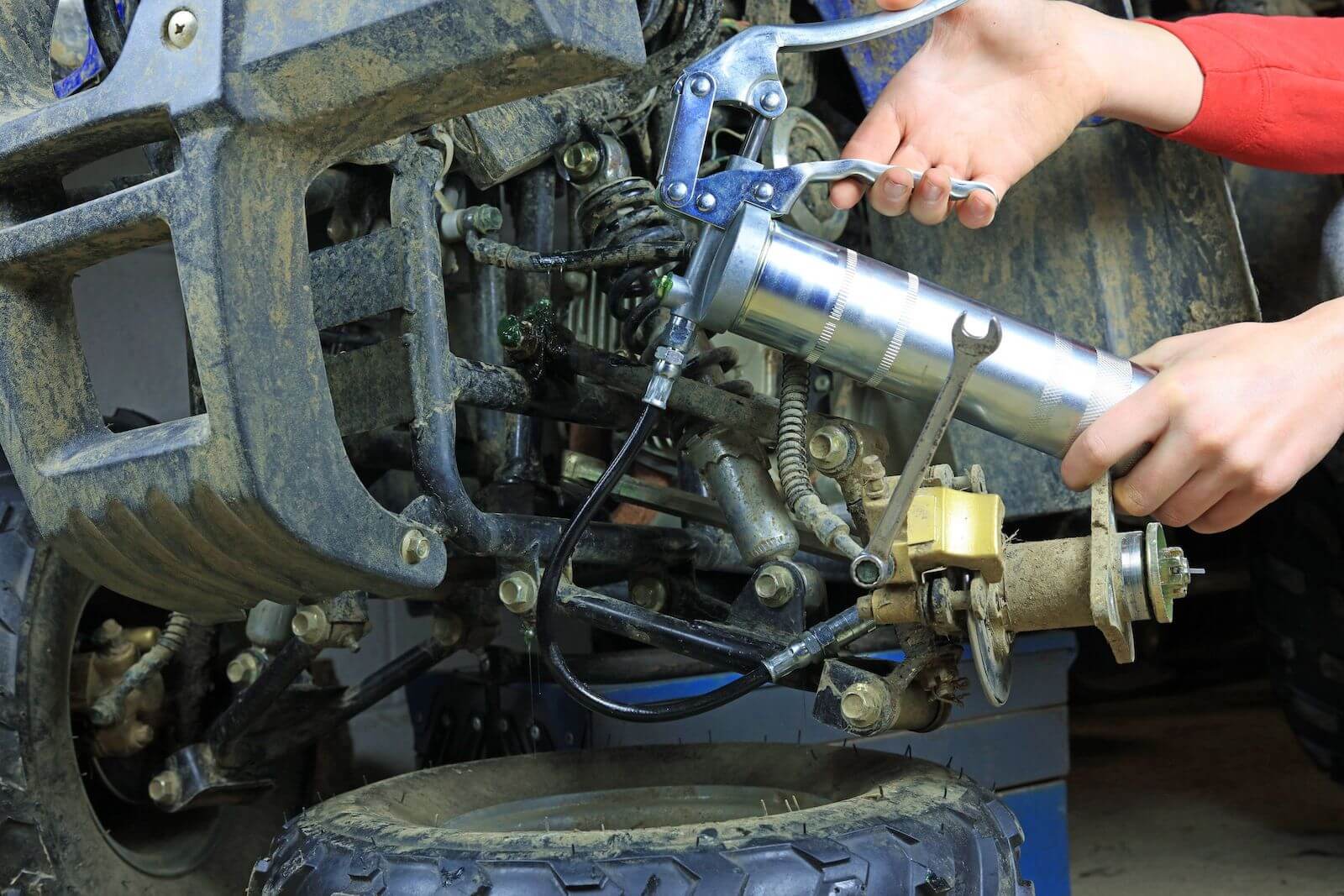Regular oil changes are the lifeblood of your vehicle. Just like a healthy diet keeps a human body in top shape, consistent oil changes keep an engine running smoothly and efficiently. This article will unlock the mysteries of oil change intervals and delve into the question: how many miles can you put on your car beyond an oil change?
The ritual of oil changes is drilled into every car owner from day one. Overshoot the miles or time suggested for an oil change, and you might think your engine’s demise is imminent. But what if it doesn’t have to be that way? That’s the question that brings us together.
Understanding how far you can safely go over your prescribed oil change interval is important. It alleviates the sense of impending doom when traffic or life gets in the way of that timely oil change.
Moreover, it gives you a sense of how to best prevent engine wear, optimize your vehicle’s performance over time, and prolong the health and longevity of your car.
Understanding an Oil Change
An oil change seems like a simple operation, but it’s a critical maintenance task that has a significant impact on your vehicle’s performance.
Essentially, an oil change is the process of removing the old, grimy oil in the engine and replacing it with fresh, clean oil. Oil, the lifeblood of your engine, keeps all the engine parts working together smoothly.

This maintenance practice plays an indispensable role in ensuring the smooth functioning of your vehicle. Over time, the oil becomes contaminated with dust, dirt, and debris from the engine and the environment. When that happens, it isn’t as effective at lubricating the engine and absorbing heat.
Changing your car’s oil regularly ensures that it remains clean and efficient. Failing to change your oil can lead to poor engine performance, higher fuel consumption, and even severe engine damage.
Think of oil as the safeguard between the critical components of your car’s engine. Without clean oil, these parts may wear out prematurely, posing a costly threat to your vehicle’s health.
Air-Tec HIGH-CLASS Automotive Oil Additive
The complex organic compounds found in HIGH-CLASS Automotive Oil Additive provide unmatched friction reduction and exceptional wear reduction and protection.
shop nowWhy Oil Changes Are Important
Oil changes are a fundamental aspect of car health, akin to an athlete’s proper hydration during a marathon. Old or dirty engine oil can hurt your car’s performance and even cause significant engine damage, which could be expensive to repair. Furthermore, neglecting regular oil changes could void your car’s warranty.
Primarily, oil lubricates the many components within an engine to minimize friction, which, in turn, conserves fuel and prevents damage. Engine oil or motor oil also cleans the engine by carrying away dust, dirty oil, and other combustion byproducts to the oil filter.

Without regular oil change intervals:
- Sludge may form, inhibiting the oil’s ability to keep components cool and well lubricated
- Wear particles could become trapped in the oil, potentially causing engine wear and corrosion
- Engine performance and fuel economy may suffer
- The chance of engine failure or other major mechanical issues significantly increases
When Should You Change Your Oil?
Optimal oil change frequency depends on several variables, including the type of the vehicle, the age of the engine, the type of oil used, and the driving conditions. However, a general baseline provided by many auto manufacturers is every 3,000 to 5,000 miles, under what they describe as ‘severe’ conditions, which include frequent short trips, extreme hot or cold temperatures, and towing.
Modern vehicles equipped with electronic oil-change indicators tied to the vehicle’s condition-based service (CBS) system might not require an oil change until 7,500-10,000 miles, or potentially longer.

Always consult your vehicle’s owner’s manual for recommended maintenance schedules. It’s essential to follow these recommendations to prolong the life of your vehicle and maintain optimal performance.
While mileage can be a useful marker, it’s not always the most accurate measure since the quality of your driving also plays a part.
Thus, if your vehicle doesn’t reach the recommended mileage within a year, an annual oil change is often advised. This ensures that your car’s oil isn’t subjected to a longer duration of potential degradation or contamination.
AirTec High-Class Micro-Ceramic Oil Additive
HIGH -CLASS Micro-ceramic lubricating oil additive works with all conventional, semi- and fully synthetic engine and gear oils. It is a selected combination of the most modern high-tech solid ceramic lubricants, making it a world leader in ceramic additives.
shop nowGoing Over the Mileage for Oil Changes
Driving beyond the recommended mileage for an oil change might be necessary at times, but it should not become a habit. Overstretching oil change intervals can pose potential risks and costly consequences to your vehicle’s health.
Allowing the engine oil to overstay in your vehicle poses a risk to moving parts that are heavily dependent on the fresh lubricant. Neglecting essential maintenance eventually detracts from the value of the car.
The accumulation of too many miles after the prescribed oil change interval can cause the oil to lose its lubricity due to the excessive build-up of dirt, dust, and other potential contaminants. The knock-on effect is increased friction between the moving part, significantly reducing the performance output of the car.

In essence, taking your vehicle well past the prescribed oil change mileage is like walking on thin ice. You might get away with it once or twice, but continuously doing so increases your risk of falling through.
Risks Involved
There are notable risks involved when you push your vehicle beyond the recommended limit for an oil change.
To understand these risks, consider the oil as the lifeblood of your vehicle, providing essential lubrication to the various mechanical parts diving the motion of your car. This lubrication reduces friction, which, if unchecked, can lead to accelerated wear and tear on your engine components.
Here are the risks you expose your vehicle to due to overdue oil changes:
- Impaired fuel efficiency: Dirty oil forces the engine to work harder, which can lead to poor gas mileage.
- Overheating: Contaminated or broken down oil does not dissipate heat as efficiently, leading to potential overheating of the engine.
- Increased engine wear: When parts rub directly against each other, the result is increased wear and tear, potentially leading to premature engine failure.
Potential Damages
The damages that could happen to your vehicle due to extended oil change intervals are extensive.
The deterioration of engine performance can lead to severe and potentially irreversible damage to the internal components of the car’s engine.
To list potential damage:
- Significant engine damage: Continuous metal-to-metal contact without sufficient lubrication can wear down engine parts over time, which might result in catastrophic engine failure.
- Lowered vehicle lifespan: Chronic and consistent neglect of oil changes can compromise the overall lifespan of your car. Even if extensive repairs can rectify the damage, it’s likely that the vehicle’s performance will never be the same.
- Costly repairs: The repair or replacement of damaged engine parts can be extremely costly.
Factors Affecting How Many Miles You Can Go Over an Oil Change
Several factors determine how many extra miles you can safely add to your vehicle before you get an oil change.
1. Type of Oil
Just as there are different blood types in humans, there are different types of oil for various vehicles:
- Synthetic oil: This type of oil is chemically engineered to provide superior engine protection and performance. It usually allows you to go longer between oil changes compared to conventional oil.
- Conventional oil: A traditional oil that offers less performance compared to synthetic but is usually more affordable.
Depending on the type of oil you use, your car can run a few hundred or even a thousand miles beyond the recommended interval without experiencing severe engine deterioration.
Air-Tec HIGH CLASS Injector Cleaner
Air-Tec High Class Injector Cleaner cleans an engine’s fuel system, removing harmful oil, carbon, sludge, and resin build up. All Air-Tec High Class products are produced in Germany and held to the industry highest standards, ensuring our products meet and exceed your expectations.
shop now2. Vehicle Age, Make and Model
The granted mileage over an oil change also largely depends on the age, make, and model of a vehicle:
- Newer models: Modern vehicles equipped with the latest technology require less frequent oil changes.
- Older vehicles: They are more prone to wear and tear and need more regular oil changes.
Every vehicle is different, so it’s essential to refer to your specific vehicle owner’s manual to understand its unique requirements.
3. Driving Conditions
Finally, the conditions under which you primarily drive your car can influence how many extra miles you can get from an oil change:
- Frequent short trips: If you usually take short drives without warming up your car properly, your engine oil may degrade more quickly.
- Extreme weather: Harsh cold or hot climates can have significant impacts on your oil’s lifespan.
- Heavy towing: If you use your vehicle to tow heavy items regularly, the additional strain on your engine might require more frequent oil changes.
Ultimately, pushing the amount of extra mileage over an oil change is not worth the potential damage to your vehicle’s engine. As such, adhering to the recommended guidelines as closely as possible is the best practice to ensure the longevity of your vehicle.
Observations and Signs That Your Car Needs an Oil Change
Even though the importance can’t be overstated, sometimes life gets in the way, and you might lose track of when your last oil change was.
Luckily, your car will start showing signs that it’s time for that overdue oil change, and it’s crucial to be aware of these signals:
- Check Engine or Oil Change Light: The most obvious sign is when your car’s “Check Engine” or “Oil Change” light illuminates on your dashboard. This should not be ignored and you should arrange for an oil change as soon as possible.
- Loud Engine Noise and Knocking: Oil provides a protective barrier between engine parts that prevents them from rubbing together. If your oil is old or low, you might hear a ticking or knocking sound.
- Dirty Oil: Clean oil should be an amber color. Over time, it will become darker and can even contain particulate matter. You can check this by taking out the engine oil dipstick, cleaning it, inserting it back into its tube, then pulling it out and looking at the color of the oil.
- Oil Smell Inside the Car: If you’re smelling oil inside the car, this could mean that your vehicle is leaking oil. Additionally, if this smell is accompanied by the smell of gas or exhaust fumes, your vehicle may be overheating.
- Exhaust Smoke: While it’s normal for your vehicle to emit translucent vapor, actual smoke is a sign that oil may be leaking into your engine’s combustion chamber.
- Excessive Mileage: If you’ve done a lot more driving than usual, especially under demanding conditions like towing, driving in extreme weather, or taking long trips, you might need an oil change sooner than your regular schedule.
You can also install an oil life monitoring system to get the notifications to change engine oil or synthetic oils regularly.
Air-Tec HIGH-CLASS Oil Stop/Stop Leak
Oil Stop repairs seals that are brittle due to normal signs of wear or increasing age. AS internal engine seals are also reconditioned oil consumption due to leaky valve steam seals is lowered and blue colored exhaust fumes are reduced.
shop nowFinal Words!
Consistent oil changes are akin to an investment in your car’s long-term health and performance. Prioritizing these maintenance tasks can save you the cost and stress of preventable repairs in the future caused by neglect.
Every vehicle is unique and comes with its manufacturer’s recommendations regarding oil change intervals. While extending the mileage between oil changes by a small amount might not instantly harm your vehicle, routinely doing so can lead to cumulative damage in your engine, reduce its lifespan, and impact performance. Always consult your car’s manual, listen to your car’s signals, and commit to regular oil changes to maintain its resilience.
While consistent maintenance is essential, so is using high-quality products to optimize your vehicle’s health and enhance its performance.
At Advanced Engine Tech, we offer a range of top-tier fuel and oil additives. Our Airtec High-Class Micro-Ceramic Oil Additive is specially designed to protect your engine against wear and improve fuel efficiency. Whether you’re topping off or replacing your oil, adding this additive to your routine can make a significant difference. Check out our range and invest in your vehicle’s well-being today. Safe driving!










